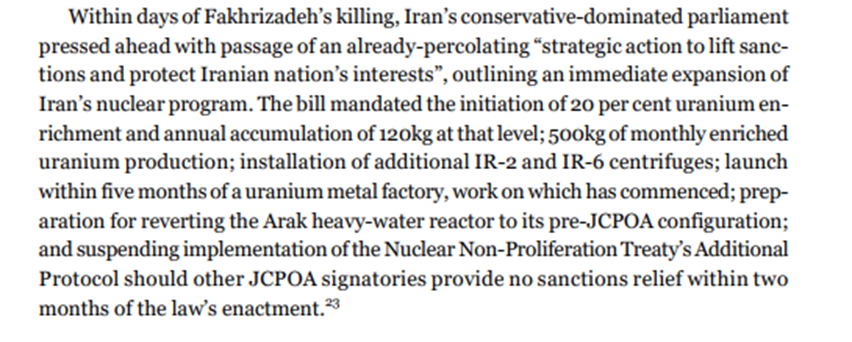
The past few years have offered a case study to test the argument made against limiting Iran's nuclear program through diplomacy: That covert operations and sabotage can do the job better and without giving any sanctions relief.
Here's what happened instead [thread]:
Here's what happened instead [thread]:
https://twitter.com/Jerusalem_Post/status/1562845499232645121
2/ When Natanz was attacked in July 2020, intel assessment from the Trump admin and Israel claimed it would take up to 2 years for Iran to get back to pre-attack capabilities.
2 years later, Iran had 4x as many advanced centrifuges running, at higher levels of enrichment.
2 years later, Iran had 4x as many advanced centrifuges running, at higher levels of enrichment.

3/ After the killing of Mohsen Fakhrizadeh in November 2020, an Israeli official said it "did not brake Iran's progress as was hoped".
No, it did not. It hit the accelerator by upping enrichment to 20%, limiting inspections, and more centrifuges.
No, it did not. It hit the accelerator by upping enrichment to 20%, limiting inspections, and more centrifuges.

4/ Another attack at Natanz in April 2021, just as #ViennaTalks were getting underway, was supposed to have delivered "a severe blow to Iran's ability to enrich uranium" and compromise Iran's leverage in negotiations.
48 hours after the attack, enrichment went to 60%.
48 hours after the attack, enrichment went to 60%.

5/5 Could add more examples but here's the point: Sabotage and covert operations at best get you a temporary delay.
At worst they compound the very concerns they're purported to address (I say purported because if the goal is political 👇 it's a quite different matter).
At worst they compound the very concerns they're purported to address (I say purported because if the goal is political 👇 it's a quite different matter).

• • •
Missing some Tweet in this thread? You can try to
force a refresh








